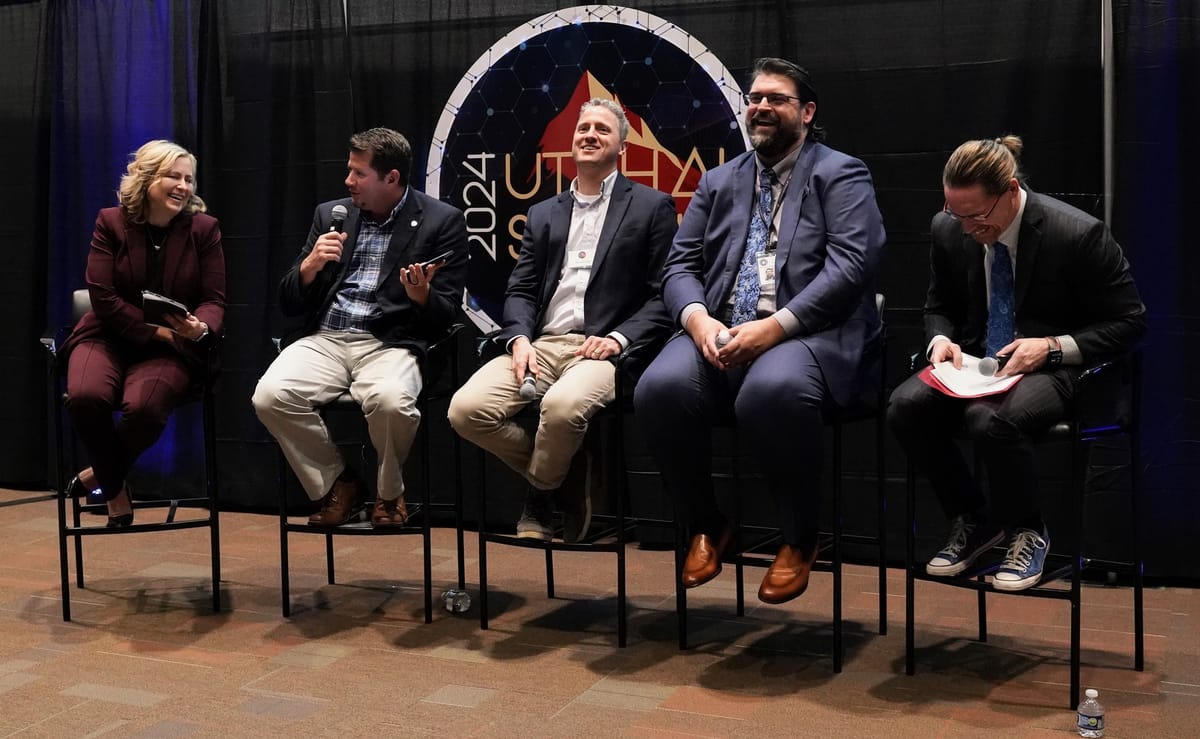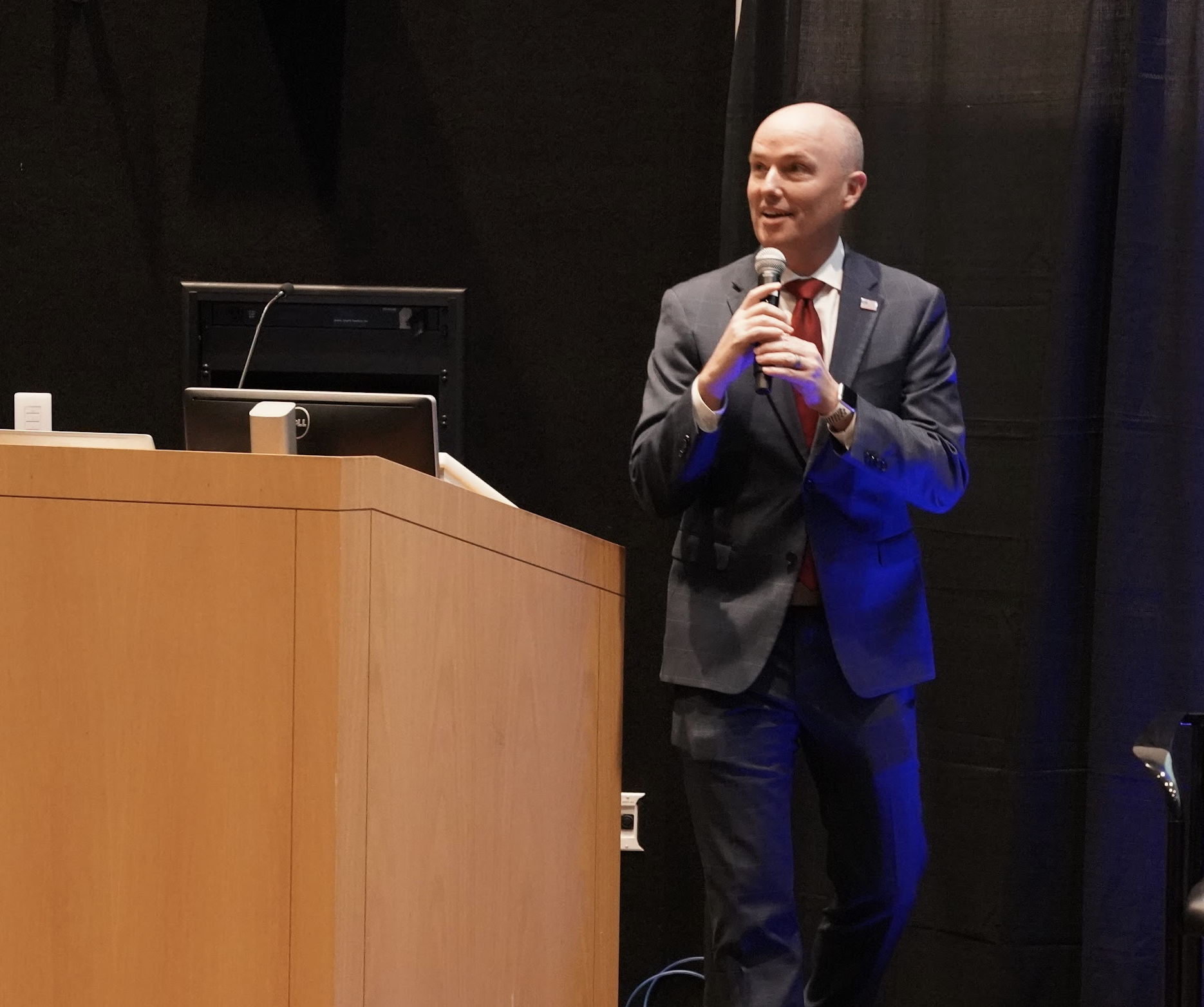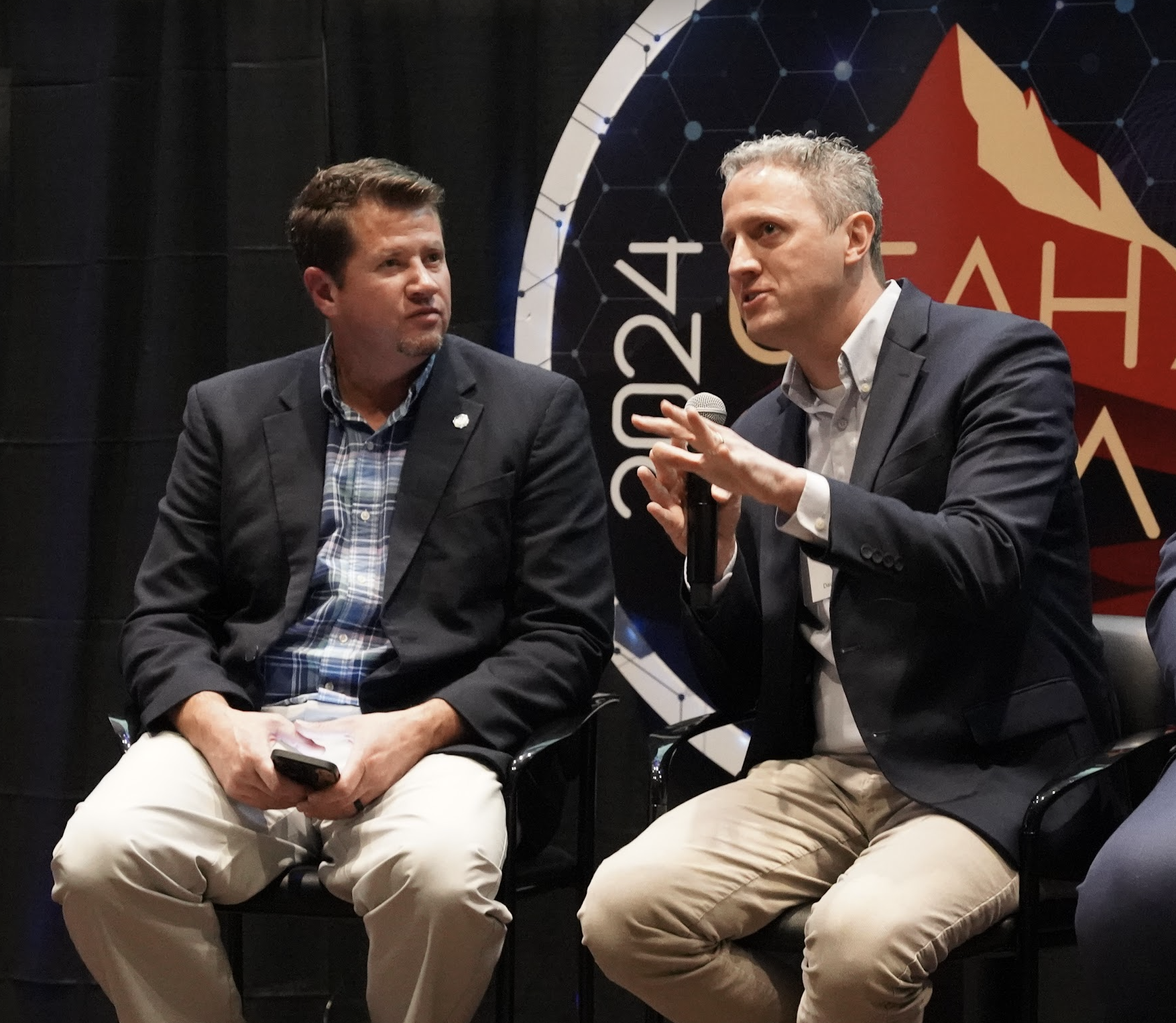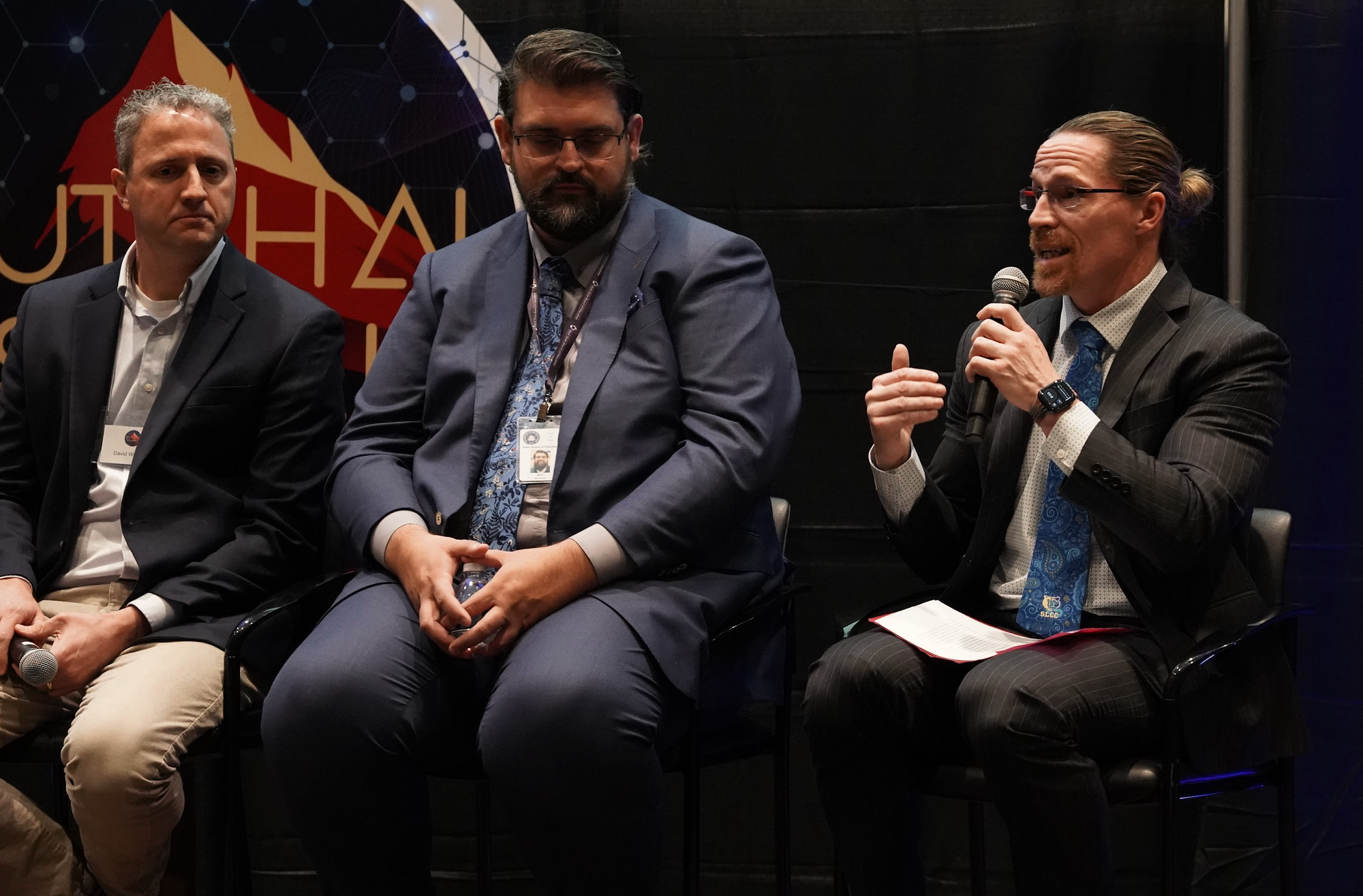

Today individuals from different sectors gathered at Salt Lake Community College Miller Campus to discuss the integration of AI in education and workforce development. The conference was hosted by the Utah Department of Commerce: Office of Artificial Intelligence Policy, Utah System of Higher Education, and the Utah Innovation Fund in partnership with America First Credit Union, Salt Lake Community College, Silicon Slopes, TechBuzz News, and Women Tech Council.
The summit represented forefront of AI innovation, policymaking, and its future impact for the state of Utah and featured a special keynote by Governor Spencer J. Cox. He shared with attendees his excitement and concerns for Utah in this new tech age. Having recently returned from a major fintech conference, the Governor highlighted how Utah has become recognized as a center for fintech globally, and how it relates to Utah's innovation with regards to AI Policy.
For additional details of the Governor's remarks, see TechBuzz coverage here.

Governor Cox said, memorably, “I truly believe that AI is going to solve all of our problems and at the same time destroy the world.” He later added, “AI has the opportunity to help us transform the government in very powerful ways.” He believes that great things are in store with this ever changing technology, but also understands some of the potential challenges that could arise.
Throughout the conference, participants had the opportunity to hear how specific sectors are addressing AI and its implementations.
The first panel of the conference, moderated by Cydni Tetro, President of Women Tech Council, one of the Summit sponsors, featured guest speakers from different parts of Utah (shown above):
- Vic Hockett - Associate Commissioner of Talent Ready Utah
- David Wingate - Associate Professor at Brigham Young University
- Matthew Winters - AI Education Specialist for the Utah State Board of Education
- Gregory F. Peterson, Ed.D. - new President of Salt Lake Community College (appointed in April 2024)
Panelists discussed their daily uses of AI: workflows, grants, coding assistance, election material preparation, research, synthesizing data, and analyzing large datasets. They noted how AI has changed the way they do their normal work functions.
Regarding higher education applications, Greg Peterson shared, “A lot of what we need to do is prepare the future workforce to think differently about AI.” He elaborated that students need to learn the basic skills to learn whatever tools emerge. With the constant changes developing in industry, it is crucial for students to learn how to prepare and adapt.
Vic Hockett told attendees about a report that noted how 85 million jobs will be lost due to AI, yet 97 million new jobs will be created. He emphasized that the net positive is huge. He emphasized, “I really think in terms of education and workforce development, we have to have both a short game and a long game approach.”

To add to the conversation, Matthew Winters stated, “It’s so important for us to remember as we build these systems around artificial intelligence, education, and workforce, is that it’s not just about what’s happening right now, but providing the flexibility into the system so that if something shifts and changes, we’re flexible enough to meet those needs going forward.”
The panel addressed some aspects in education that could impact the AI initiative:
- The need for teachers and parents to be skilled in AI concepts.
- Introducing AI concepts in pre-k classrooms and integrating them into curriculum
- Identifying the existing digital literacy standards in Utah that support early AI education

They discussed challenges associated with deepfakes and AI Literacy. In talk of deep fakes, they brought up the importance of cryptographic watermarking and provenance tracking. Panelists highlighted the need for detection of these deep fakes. They agreed that enhancing AI literacy could aid in this endeavor. They concluded that understanding AI’s impact on society and the importance of technical literacy would be beneficial.
Wingate noted, “We need to teach people about data and how data is essential to AI…how algorithms can amplify negative stereotypes and biases…people just need to understand a little bit about that, because then we can cover the technical gaps.” Through literacy, Wingate asserts that people will know how to best utilize AI and also be able to verify its flaws and gaps.
In this new age of technological advancements, Utah is embracing the future of AI. They are consistently seeking best methods to protect their residents, but also encouraging them to become more literate on the subject. Utah policy makers hope to create effective regulations on AI, without diminishing the growth and opportunities AI could provide for businesses, education, and government.

